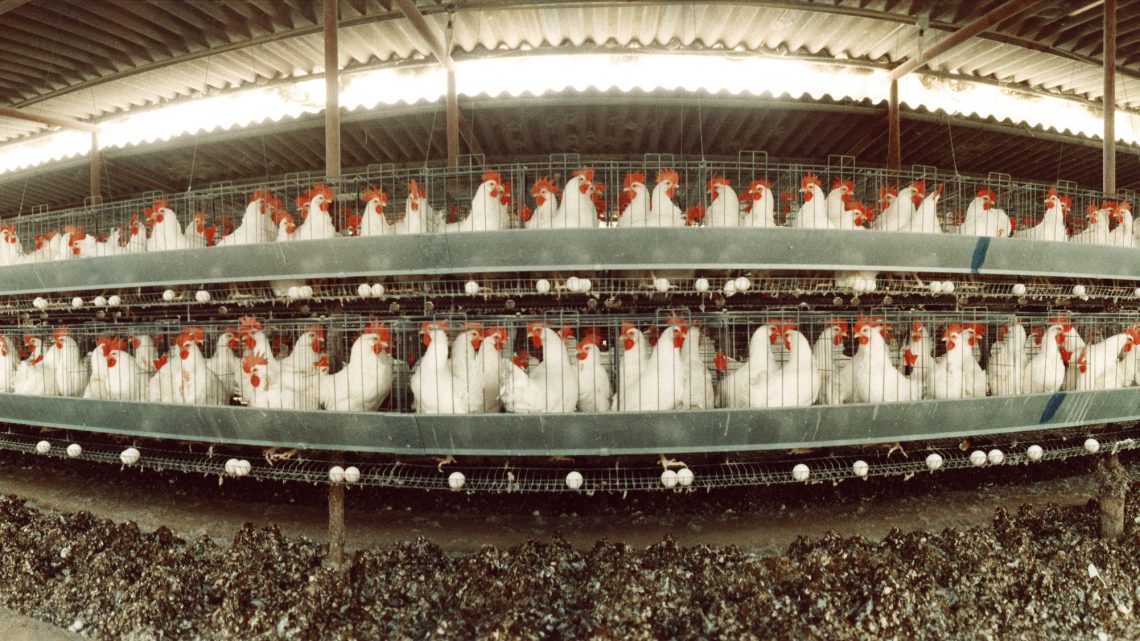
Farmers Are Euthanizing Thousands of Chickens Despite Surging Egg Demand
April 24, 2020From the beginning of March to the beginning of April, the wholesale price of eggs more than tripled, jumping from 94 cents to $3.01 per dozen. Due to both panic buying and increased demand (we're all making our breakfasts at home now), some supermarkets reported that they were ordering four to six times as many eggs as they would have under regular, non-pandemic-related circumstances, and some chains were buying from food service distributors like Sysco in order to keep them in stock.
But while while some farmers are literally counting their chickens and doing back-of-the-envelope math about whether they'll be able to deliver enough eggs, others have been forced to euthanize thousands of birds. Although both retailers and egg suppliers have suggested that the egg supply could "remain tight" in the upcoming weeks or months, the relationships between our food distribution systems and the separate wholesale and retail supply chains are complicated and confusing.
Last week, Cargill Inc. temporarily shuttered its plant in Big Lake, Minnesota and laid off some 300 of its employees. According to the Star Tribune, that facility processes more than 800 million eggs annually, turning them into containers of liquid egg product that are shipped to food service companies throughout the country. But those companies are contending with a massive decrease in sales too, since their clients—including restaurants, school and college cafeterias, and sports stadium vendors—have been temporarily closed, too.
"It is important to note that food-service orders have not stopped, but with the decline in food-service orders, Cargill and its egg suppliers are working diligently to rebalance supply to match these consumer and customer shifts,” the company said in a statement. (VICE has reached out to Cargill for additional comment but has not yet received a response.)
Just before the Cargill plant ceased operations, a crew of 15 workers arrived at Kerry and Barb Mergen's farm outside of Albany, Minnesota to euthanize 61,000 chickens. The workers were sent by Daybreak Foods, the Wisconsin company that had contracted the Mergens to raise the chickens and produce eggs for several more months. Instead, the birds were gassed with carbon dioxide, loaded into large trucks, and driven to a rendering plant where they'll be turned into dog food.
The Mergens made almost $700 every day from the sales of their eggs, and now that their biggest source of income is gone, they're unsure how to move forward. "It’s painless for the birds," Barb Mergen told the Star Tribune. "I don’t have a thing against that, but it’s just that someone can come in so quickly and when they euthanized the birds, that was our paycheck euthanized.”
Kerry Mergen said that there were five Minnesota farms, including his, where flocks of chickens were euthanized—and it is happening in other states as well. Two poultry processing plants in Pennsylvania were temporarily closed after employees tested positive for coronavirus, and "more than two" farms in the state were forced to euthanize their birds as well.
"[The farmers] look at every opportunity they can to repurpose these animals, and in the current situation, they were unable to," Dr. Gregory Martin, an extension educator at Penn State, told ABC 27, suggesting that those decisions had to be made due in part to the "time-sensitive" nature of the egg industry.
And, much like restaurant suppliers that aren't able to divide and repackage massive wheels of cheese, for example, in order to sell them to supermarkets, these chicken farmers can't simply pivot to retail sales, either. (Of course, cheese doesn't have to be killed if it doesn't sell.)
In the Mergens' case, they said that they don't have the equipment that is required to grade eggs for retail sale. They also don't want to take the financial risk of buying enough chickens to fill their barns again. "It’s a very challenging time," Kevin Stiles of the Chicken & Egg Association of Minnesota acknowledged. "It's very stressful for farmers."
It's not great for the chickens, either.


